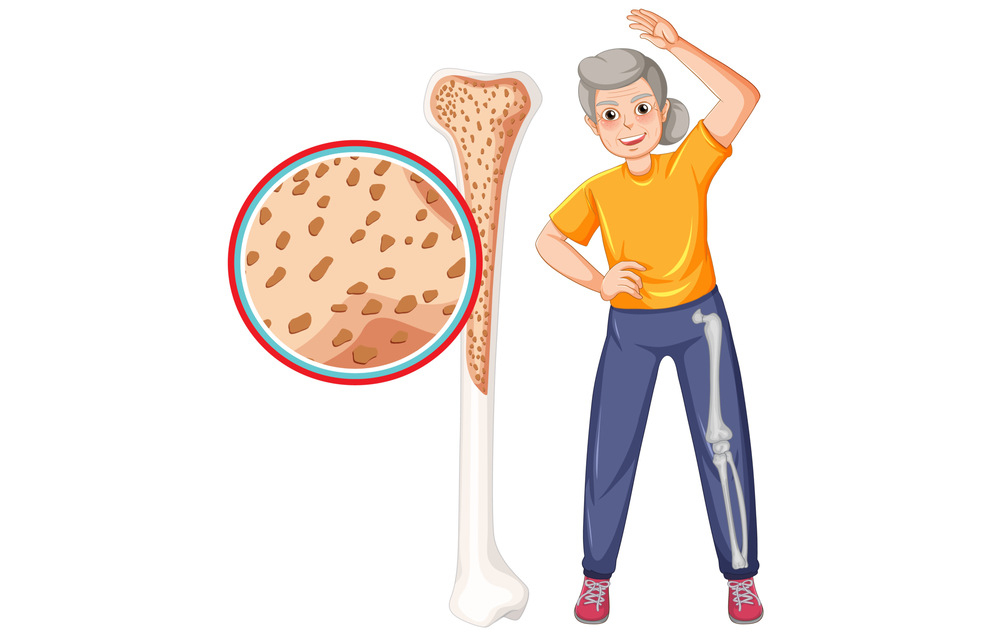What is menopause?
Menopause is a stage where a woman stops getting menstruation cycles. It usually occurs between the age of 45-55. After menopause, women can increase the risk of developing osteoporosis. Osteoporosis is a condition in which bones lose density. In this condition, bones become thinner and may fracture easily.
Bones need oestrogen for strength. The drop in oestrogen levels after menopause affects the levels of calcium in the bones and hence, it reduces bone density. Many women face sudden bone loss after the first five years of menopause.
How to reduce the risk of osteoporosis after menopause?
Focus on a healthy diet: To fight osteoporosis and keep bones healthy, you need to eat a diet rich in calcium and vitamins. Milk, tofu, yogurt and almonds are good sources of calcium. For vitamin D, direct exposure to sunlight on the skin is a good source. Taking regular vitamin D supplements helps to fulfil the requirement and makes bones stronger.
Maintain a healthy weight: Menopause leads to weight gain and puts direct pressure on knee joints. Changes in hormonal levels also cause weight gain. However, ageing may be another factor for weight gain.
Regular exercise helps to control your weight such as running, cycling, swimming etc. Ideally, 140-150 minutes of moderate exercise in a week or 70-80 minutes of intense exercise are good for maintaining a healthy weight.
Don’t forget to include weight training in your workout regime. Weight training strengthens muscles and strong muscles help to bear weight from joints. Hence weight training is a good option to fight osteoporosis.
Being overweight causes heart disease, diabetes, high blood pressure and other health conditions.
Avoid smoking and alcohol: Reducing and avoiding smoking and alcohol also helps to tackle osteoporosis. Smoking and alcohol increase the risk of bone loss. Hence, reducing or giving up on both helps to maintain good bone health.
Conclusion
Menopause signifies the natural ending of the menstrual cycle for all women. It is a time when a woman notices several changes in her body. Hormones like oestrogen and progesterone are decreased. After menopause, certain diseases like osteoporosis, arthritis and cardiovascular may arise. Lifestyle changes make a big difference.
To fight these diseases, you should maintain a healthy diet and exercise regularly to avoid extra weight gain.


